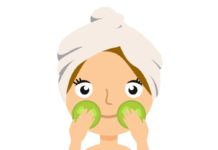A major role with this tea is its ability to calm restless sleep, relieve anxiety and stress, soothe menstrual pain, eliminate eating disorders, and ease stomach discomfort. It also helps speed up the recovery from colds and fevers, detoxify the body, reduce inflammation throughout the body, and even speed wound healing.
Catnip is a perennial that is found across Europe and parts of Asia such as China. There are many uses and catnip can be applied topically with the leaves or as an essential oil which is quite popular for their uses. Catnip is often used in teas, juices, tinctures, extracts, salves, cooking, and even as an herb for smoking.
- Reduce Stress – It has a calming action. It is able to relax you soothing your nerves and calm your anxiety without sedating. Like most herbal teas, catnip is caffeine free. Interesting to note, if you are going through nicotine or drug withdrawal, catnip herbal tea is great to help you calm down and sooth the stress that you may suffer during this period or even after you have undergone long periods of treatment with prescription medication. As a sedative substance, catnip tea should be taken when drowsiness or fatigue is desired, which is why this tea is often a pre-sleep beverage. If you suffer from insomnia or chronic restlessness, a strong cup of this tea can give you a restful night’s sleep. Do not drink this tea before operating heavy machinery or getting behind the wheel of a car.
- Assist with Sleep – This tea is used as a treatment for insomnia, since it helps to bring on a restful sleep by relaxing the mind.
- Headaches – It has nepetalactone, the substance produced by catnip, that causes it to act as a sedative and produce a soothing action against migraines and headaches.
- Digestive Issues – It helps relieves stomach complaints as it is a natural anti-acid and can help to reduce acid reflux, thus soothing indigestion. With your digestive system back on track, this tea will stimulate your appetite. Have a cup to help digestion, if you go a bit overboard during your next big family meal. This tea can also help with colic, diarrhea, cramps and flatulence. It is an antispasmodic, so it may sooth your stomach muscles and help to cure stomach ulcers.
- Menstrual Cramps – Its very popular for its role in easing menstrual symptoms, catnip tea can ease the pain of menstrual cramps and bloating, while the mood-altering effects of this tea can help reduce other common symptoms of menstruation, such as depression, irritability and mood swings. At the same time, it is an emmenagogue, so it may increase your menstrual flow and stimulate the uterus. This may be helpful when you need help to regulate your cycle.
- Expedite Illness Recovery – Apart from being a great natural sedative, catnip is also anti-bacterial, which means it is also a great tea to take when you have a cold or when allergies set in. Hot catnip tea helps to bring down fevers, through sweating, and also acts as a decongestant as it loosens phlegm and soothes respiratory distress. Take this tea as soon as you feel the first flu or cold symptoms. It will alleviate your fever and nausea. It is helpful with bronchitis, serves as a good inhalant for coughs and sore throats. It is often recommended by alternative practitioners for treating the common cold. With regards to a colds and flu it is one of the fastest ways to clean out the body is to induce sweating and get the toxins flushed from the system. This is particularly true in the case of fevers when the lack of sweating before the fever breaks is only keeping those toxins and pathogens in the body.
- Anti-inflammatory Activity -The chemical constituents of catnip are effective as anti-inflammatory agents. This means that it can be effective in the treatment of arthritis, gout, sprained muscles, aching joints, and even hemorrhoids. Topical application or normal consumption of leaves, juice, or tea can be effective for all of these situations.
- Treats Skin Conditions – The natural repellent quality of catnip makes it ideal for keeping bugs from gardens when kept as an ornamental plant, but the organic compounds in the plant make it ideal for soothing bug bites and relieving skin irritation. Applying salves or extracts to the irritated or broken skin can speed the healing process and reduce inflammation quickly. Note: For people suffering from liver or kidney disorders, the use of catnip may be risky, particularly if you are regularly consuming the tea. Furthermore, pregnant women should avoid it, as it can prematurely induce labor. Other than those specific concerns, it is generally considered non-allergenic and harmless to users. The high potency of the essential oil should be considered, however, and extracts should always be mixed with carrier oils.
- Relax Muscles – It comes in great aid after an intense workout, as it can assist and relax your muscles.
- Pain Relief – If you suffer from cystitis or bladder inflammations, catnip tea can also ease your pain.
Other Uses:
- It is a great relaxant for asthma and also helps if you suffer from sinusitis.
- It may be used as a wash or soaking your skin to disinfect bacteria. This may help with tissue repair and heal abrasions, burns, cuts, and insect bites. It is able to clean and clear the wounds.
- It can also be used as a rinse for an irritated scalp or as a natural remedy for dandruff.
- It can be used as a an eyewash for allergies and inflammation relief. If eyes are swollen you can use a towel soaked in catnip and then place over the eye for about 30 minutes.
- If you feel a toothache coming, you can immediately use to relieve your pain.
- If you suffer from arthritis, hemorrhoids or soft tissue injuries.
Recipe:
- 3 teaspoons of fresh catnip leaves (or 1 teaspoon of dried catnip leaves)
- 2 cups of water (filtered)
- 1 teaspoon of honey if you desire
Step 1 – Boil the water in a pot.
Step 2 – Add the leaves to your tea cup.
Step 3 – Remove the water from the heat and wait until it stops boiling before pouring it over the leaves in the cup. Excess heat can compromise many of the benefits derived from catnip leaves.
Finally, the last step is to add some honey or lemon juice if you wish and enjoy this tasty drink!
1. http://science.sciencemag.org/content/146/3649/1318
2. https://pubs.acs.org/doi/abs/10.1021/ja01851a019
3. https://www.ncbi.nlm.nih.gov/pubmed/10711131
4. http://onlinelibrary.wiley.com/doi/10.1111/j.1365-2915.2009.00809.x/abstract

























